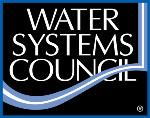
Hearts That Pump Water: Pumps of Oklahoma & Water4
 New WSC members Richard and Terri Greenly, co-owners of Pumps of Oklahoma and co-founders of Water4, believe they have the solution to the world’s clean water problem — a problem, they say, that will not be solved through building wells but through building businesses.
New WSC members Richard and Terri Greenly, co-owners of Pumps of Oklahoma and co-founders of Water4, believe they have the solution to the world’s clean water problem — a problem, they say, that will not be solved through building wells but through building businesses.
Located in Oklahoma City, Pumps of Oklahoma is a global pump distribution company for environmental remediation supplies, industrial and oilfield pumping equipment. The Greenlys purchased Pumps of Oklahoma from Terri’s parents in 2005, after having worked in the family business since the mid-1980s.
It was also in 2005 that Richard had the opportunity to travel to China to install solar-powered water well pumps in rural villages where children did not attend school because they had to haul water all day. Unbeknownst to Richard until he noticed a national Chinese media crew following his team, this was the first solar-powered pump installation in China.
Following the successful pump installation in China, Richard was invited to present a paper on the project at President George H. Bush’s council on water in emerging nations. While at the symposium, he took note of another presentation on drilling a well in the Amazon for $50 and took the lessons learned there to develop a similar method that he used in 2008 in Sierra Leone to hand-drill a well in two days. Completed to U.S. standards, that one well reversed the high mortality rate in the village due to bad water and set the Greenlys on a new path to eradicating the world water crisis.
“We decided to become very intentional about how we were going to start doing this,” says Richard. “People kept trying to give us money but we knew money wasn’t going to solve the problem. We wanted to do what we do best: start businesses. We don’t have the money to give to 1.2 billion people who need water, but we can teach them how to have a sustainable water supply and make money doing it.”
So Richard and Terri founded Water4, a 501(c)(3) organization, in 2008 to teach people in developing nations how to build wells, make money and have a sustainable business.
 According to Richard, it takes $10,000 to drill a traditional well in a developing country. The Water4 wells cost $1,000 and are built in a week by a team of 4-5 people using augers and manual cable tools. The maximum drilling depth is 150 feet for a four-inch well built to U.S. standards. And the pumps for those wells? Well, this is where the story gets really interesting.
According to Richard, it takes $10,000 to drill a traditional well in a developing country. The Water4 wells cost $1,000 and are built in a week by a team of 4-5 people using augers and manual cable tools. The maximum drilling depth is 150 feet for a four-inch well built to U.S. standards. And the pumps for those wells? Well, this is where the story gets really interesting.
The problem in drilling conventional water wells in developing nations is that when something breaks, there’s no one around to fix it. Richard knew the pumps would need to be cheap, portable and easy to fix. So he called on Steve Stewart, who owned a manufacturing company, to help with a solution.
Steve started researching water-lifting devices and went back centuries, to 15th century drawings by Leonardo da Vinci. He built a device based on da Vinci’s drawings with materials he got from Lowe’s and it worked. He had also found a 1675 patent from England that had possibilities, so he combined the two ideas to invent a brand new pump that only costs $25 and outlasts current pumps 10 to 1.
They named it the Access 1.2 Hand Pump, for the 1.2 billion people who need water. Water4 patented the new pump, and then released it into the public domain. Steve also developed more manual drilling tools that allow Water4 teams to drill down 150 feet.
Water4’s work in developing countries led to a five-year pact with the world’s largest humanitarian organization, World Vision, to drill 7,000 wells in eight African countries. Water4 is building a manufacturing and training facility in Ghana that will be up and running this summer, and will train 60 four-person teams that will drill 2,000 wells per year per team.
Water4’s goal is to build 40 of these facilities, which provide training to teams that become Water4 franchise owners. Each team earns a contract to drill wells upon completion of a 3-4 month training course. World Vision supplies the teams with micro-loans to purchase equipment to fulfill their contracts. In countries where the average wage is $1/day, a team can earn $50 per week drilling wells as well as additional income for fixing the existing 200,000 broken wells in Africa.
Richard estimates that in 10 years, the 40 Water4 facilities will result in one million new wells drilled – and that not only solves the water problem in Africa, it builds a robust business infrastructure to support the continent’s ongoing needs for a clean water supply.
WSC is proud to welcome Pumps of Oklahoma as a new member in 2014. For more information on Water4, visit www.water4.org.
 Water Systems Council
Water Systems Council